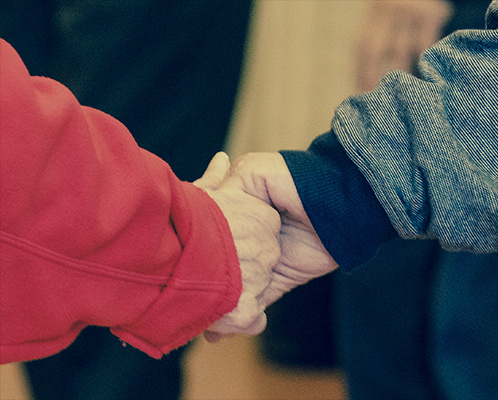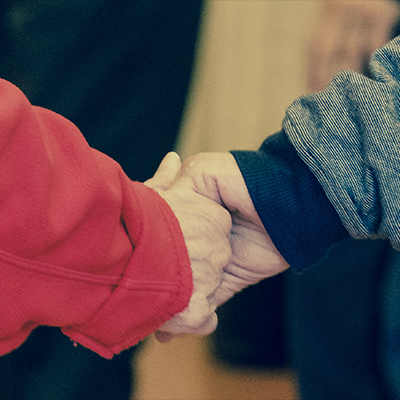From Today’s Office of Readings:
Throughout Lent, we invite you to listen to the stories of refugees accompanied by JRS. As we listen, we hear them cry to the Lord for help.
Hassan-Ali’s Story
Faith is very important to many of the refugees served at JRS UK. It can be a source of strength for them on their journey to safety when all else seems lost and is often a topic of conversation in the Day Centre between refugees and volunteers.
But at JRS, we serve all, regardless of their faith or background; we never seek to proselytise those we serve and seek to create an environment where all are respected as individuals and able to express themselves freely.
Hassan-Ali is himself a devote Muslim, taking comfort in his faith and the community at his local mosque. Hassan-Ali says: “The JRS staff treat equally all the visitors to their centre regardless of their ethnic background, gender or religion. I myself am a Muslim”
In a society which so often pushes refused asylum seekers to its edges, friendship is not something that is easily found. Hassan-Ali was able to find that sense of community at JRS: “Whenever I visit the Centre it is like going to visit my long-term friends.”
Hassan-Ali’s story is real, however we have changed his name to protect his privacy.
#Do1Thing
Today we invite you to sit with the day’s readings and join Fr. Frank Turner SJ in a space of reflection and prayer:
Our text concludes a Psalm which consists mainly of the angry condemnation of God. ‘Our ancestors have told us what deeds you performed in their days’. Previously, God’s right hand delivered them, God ‘delighted in them’. ‘In God we have boasted continually, and we will give thanks to your name forever.’
Yet now, ’You have rejected us and abased us….. you have sold your people for a trifle’. ‘Why do you hide your face? Why do you forget our affliction and oppression?’
Who would dare pray to God like this? The God who is elsewhere our ‘rock’ is now represented as untrustworthy, even treacherous. There is a strange, radical reversal. The people are held to be faithful to God, God unfaithful to the people.
And yet the final prayer still stands. In another standard translation, the New Revised Standard Version, the final verse reads ‘Redeem us because of your steadfast love’. God can never quite be written off… Three considerations may shape our response to this.
First, the Psalmist prays from a real and honest sense of anger, not from a false piety, as if manipulatively denying our feelings will successfully flatter God into compliance.
Second, the Psalmist evidently assumes a partisan, tribal, God, who takes the side of the ‘chosen people’ against outsiders: ‘our’ victories reveal God’s faithfulness, ‘our’ defeat’ means God’s rejection. God can never be ‘ours’ as opposed to ‘theirs’.
Third, the God Christians proclaim becomes one with us, not by defeating others but by suffering with those who are oppressed. From the cross, Jesus prays ‘My God, my God, why have you forsaken me?’, the first verse of a Psalm which ends with a proclamation of Gods deliverance. But that deliverance is never a short cut through human suffering.
[Sign up to receive our daily Lenten emails]



